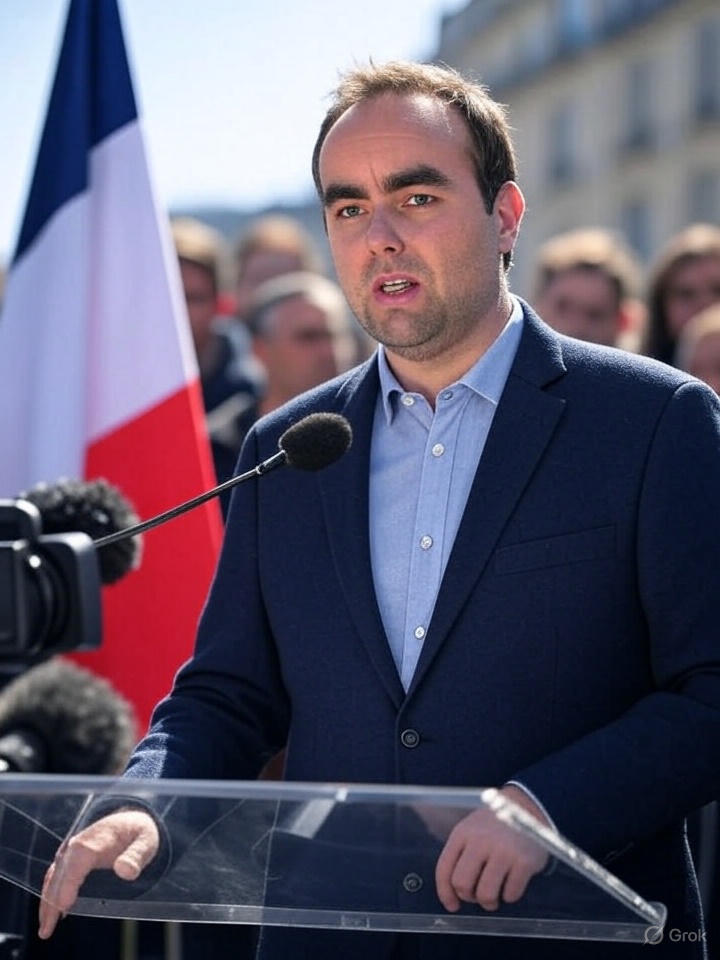President Emmanuel Macron has appointed Sébastien Lecornu, the former Minister of the Armed Forces, as France’s new Prime Minister following the ouster of his predecessor in a parliamentary confidence vote. This selection reflects Macron’s strategy to maintain continuity in governance while navigating a fragmented National Assembly. Lecornu, a centrist figure aligned with Macron’s Renaissance party, brings extensive experience in defense and local administration, having served as mayor of Vernon and in various ministerial roles. His appointment aims to stabilize the executive branch and advance key legislative priorities, including fiscal reforms and economic recovery initiatives. The transition occurs against the backdrop of a confidence vote that led to the government’s downfall over proposed budget measures designed to address France’s public finances. The vote, initiated by opposition parties, highlighted divisions in parliament, where no single bloc holds a majority following the previous year’s legislative elections. Macron’s office emphasized the need for cross-party dialogue, directing Lecornu to engage with representatives from all major groups to forge compromises on the 2026 budget and other policies. This approach seeks to build a minority government capable of passing essential legislation without relying on absolute majorities. Lecornu’s immediate priorities include forming a new cabinet, expected to blend experienced politicians with fresh perspectives to broaden appeal across the political spectrum. Consultations with parliamentary leaders from the left, center, and right have already begun, focusing on areas of potential agreement such as infrastructure investments and social welfare adjustments. The new government plans to present a revised budget framework that incorporates feedback from these talks, aiming to balance deficit reduction with support for households and businesses. Macron has publicly endorsed Lecornu, stating that his leadership will foster the unity required to implement France’s strategic agenda, including enhancements to national security and sustainable growth. In parallel, a grassroots movement known as ”Block Everything” has mobilized public participation in the political discourse, organizing nationwide demonstrations to express views on economic policies and governance. These events, supported by labor unions and civic organizations, have drawn attention to demands for greater social equity and institutional reforms. Authorities have managed the gatherings with a focus on public safety, resulting in coordinated responses that allowed for peaceful expression while maintaining order. The movement’s emergence underscores the active engagement of citizens in shaping France’s future, prompting discussions on potential constitutional adjustments to improve legislative efficiency. Economically, the political developments have prompted assessments from financial institutions, with credit rating agencies like S&P Global noting the challenges but affirming France’s underlying strengths in innovation and export sectors. The European Central Bank has monitored the situation, signaling readiness to support stability through monetary tools if needed. Business leaders have highlighted the importance of swift resolution to restore investor confidence, pointing to opportunities in sectors like renewable energy and digital transformation. Lecornu’s background in defense positions him to strengthen France’s role in European security cooperation, potentially advancing joint initiatives with allies on defense procurement and strategic planning. Outcomes from this appointment include the resumption of parliamentary proceedings under a structured timeline, with the new cabinet slated for presentation to the Assembly for endorsement. Early indicators show progress in budget negotiations, with provisional agreements on spending allocations for education and healthcare. The government’s formation has also spurred renewed interest in bipartisan working groups, leading to collaborative proposals on labor market reforms that could enhance employment opportunities. Public opinion polls reflect a cautious optimism, with a majority expressing support for inclusive dialogue as a path forward. On the international front, Lecornu’s elevation reinforces France’s commitments within the European Union and NATO, ensuring continuity in diplomatic engagements. Recent meetings with EU counterparts have focused on harmonizing fiscal policies across member states, contributing to a cohesive response to global economic pressures. Domestically, the administration is prioritizing administrative efficiencies, such as digitizing public services to reduce bureaucracy and improve accessibility for citizens. These steps are projected to yield measurable improvements in service delivery, benefiting millions through streamlined processes. The broader political landscape in France continues to evolve through this period of transition, with Lecornu’s leadership facilitating a focus on actionable reforms. By emphasizing consultation and pragmatism, the government aims to address longstanding priorities like housing affordability and regional development. Stakeholder involvement has intensified, with input from local authorities and industry groups informing policy design. This inclusive method has already resulted in preliminary endorsements from moderate factions, paving the way for legislative advancements. As France moves forward, the emphasis on resilience and collaboration positions the nation to capitalize on its diverse talents and resources, fostering a stable environment for progress.
www.34news.online
www.34news.online

